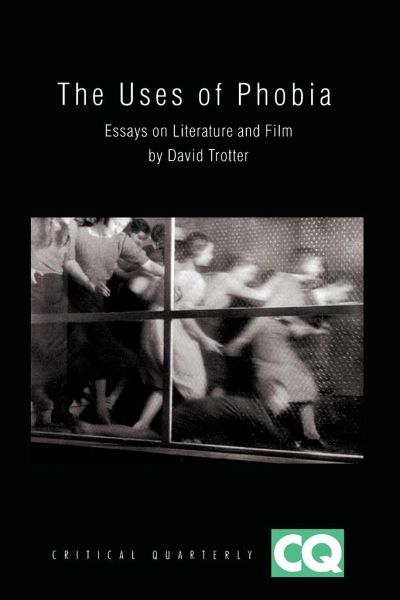
The Uses of Phobia
Essays on Literature and Film
Versandkostenfrei!
Versandfertig in über 4 Wochen
35,99 €
inkl. MwSt.

PAYBACK Punkte
18 °P sammeln!
The essays brought together in this book understand phobia not as a pathology, but as a versatile moral, political, and aesthetic resource - and one with a history. They demonstrate that enquiry into strong feelings of aversion has enabled writers and film-makers to say and show things they could not otherwise have said or shown; and in this way to get profoundly and provocatively to grips with the modern condition. * Makes extensive reference to original readings of a wide range of literary texts and films, from the 1850s to the present * Places a strong emphasis on the value phobia has held,...
The essays brought together in this book understand phobia not as a pathology, but as a versatile moral, political, and aesthetic resource - and one with a history. They demonstrate that enquiry into strong feelings of aversion has enabled writers and film-makers to say and show things they could not otherwise have said or shown; and in this way to get profoundly and provocatively to grips with the modern condition. * Makes extensive reference to original readings of a wide range of literary texts and films, from the 1850s to the present * Places a strong emphasis on the value phobia has held, in particular, for women activists, writers, and film-makers * Discusses a range of writers and film-makers from Dickens, Thackeray, and George Eliot through Hardy, Joyce, Ford and Woolf; from Jean Renoir through Hitchcock and Truffaut to Margarethe von Trotta and Pedro Almodóvar * Intervention in key debates in cultural theory and cultural history


